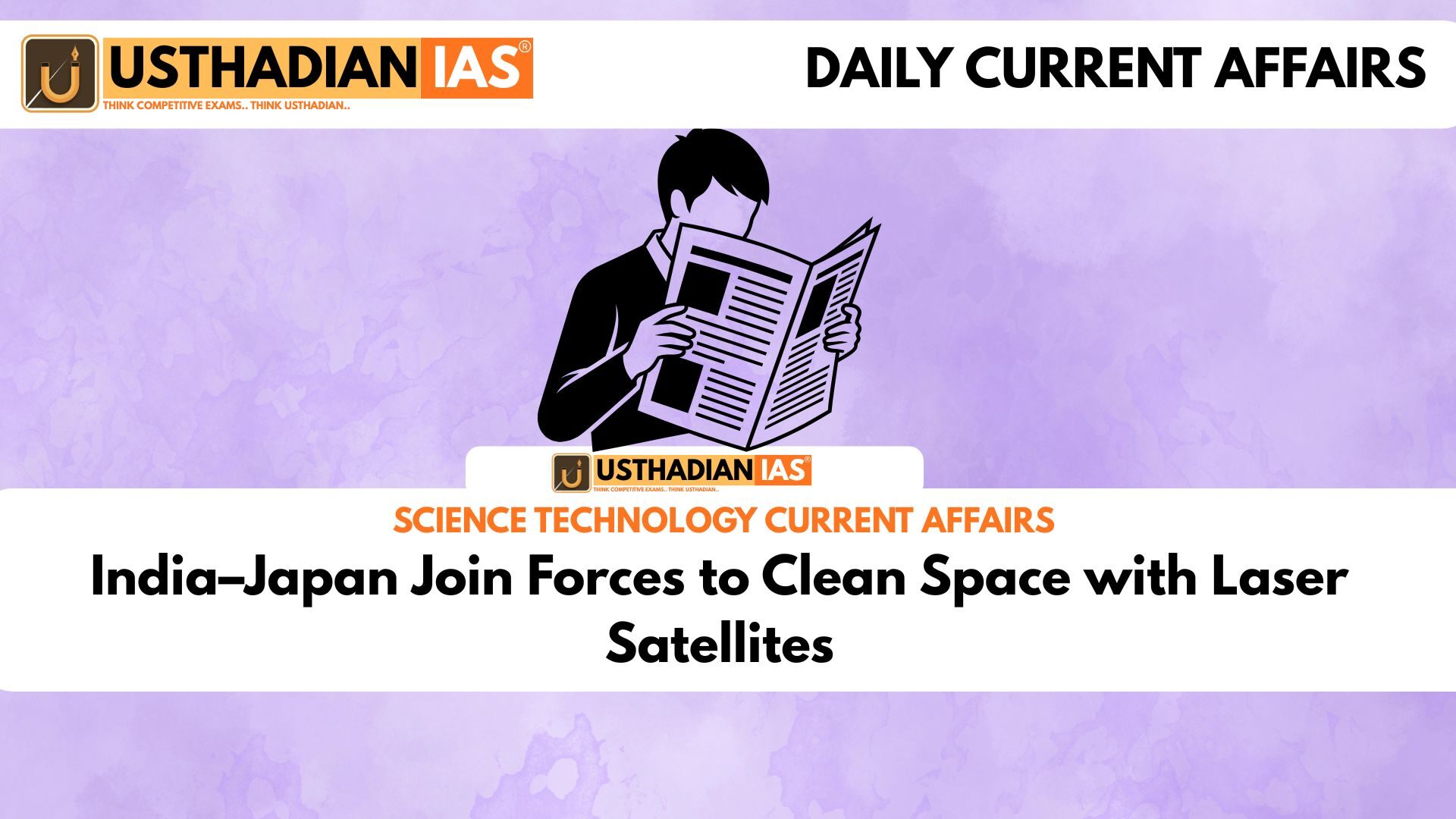A New Era of Space Responsibility Begins
India–Japan Join Forces to Clean Space with Laser Satellites: India and Japan are coming together for an ambitious space project—but it’s not about launching new satellites. This time, they’re focused on cleaning up space. With over 27,000 pieces of space debris floating in Earth’s orbit, both countries have realized that it’s time to act—before space becomes too dangerous to explore.
What’s the Problem with Space Debris?
Every rocket launch leaves behind bits and pieces—dead satellites, metal fragments, and used-up boosters. These may sound harmless, but at 28,000 km/h, even a tiny bolt can smash into a working satellite and destroy it. The worst-case scenario? A domino effect of collisions, also known as the Kessler Syndrome, which could trap us on Earth for decades.
India–Japan Solution: Lasers and Robots in Orbit
Enter the two key players: Orbital Lasers, a Tokyo-based startup, and InspeCity, a young Indian company specializing in space robotics. Together, they’re developing a system to fire controlled laser beams at space debris, nudging it out of orbit. The idea is to vaporize parts of the debris surface, slow it down, and let it burn up safely in Earth’s atmosphere.
Built for the Future: Demonstration by 2027
This isn’t just a paper plan. Orbital Lasers has set a target to test the system in space before 2027. Meanwhile, InspeCity is working on the robotic side of the mission—building tools to grab, move, and possibly repair or refuel satellites in orbit. It’s like creating a fleet of space janitors and mechanics.
More Than Just Debris Removal
What makes this collaboration exciting is that its technology has multiple uses. The same lasers and robots could be used to service old satellites, helping them last longer. For example, a weather satellite nearing retirement could be refueled or fixed, saving millions of dollars. This could be a game-changer for space agencies and private telecom firms alike.
India–Japan: A Growing Space Partnership
Both ISRO (India) and JAXA (Japan) are expanding their reach into space, from lunar missions to climate monitoring. By investing in shared solutions like this, they are not only helping themselves but also setting an example for global cooperation in space safety.
A Global Problem Needs Global Thinking
Space debris doesn’t belong to one country—it threatens everyone’s satellites, from GPS systems to internet providers. India and Japan’s effort could lead to global standards, even forming the basis for future space laws on orbital cleanliness and shared responsibility.
STATIC GK SNAPSHOT FOR COMPETITIVE EXAMS
India–Japan Join Forces to Clean Space with Laser Satellites:
| Topic | Details |
| Collaboration | InspeCity (India) + Orbital Lasers (Japan) |
| Purpose | Remove space debris using laser-equipped satellites |
| Technology | Laser vaporization + robotic de-orbiting |
| Demo Target | Before 2027 |
| Related Agencies | ISRO (India), JAXA (Japan) |
| Current Debris Count | Over 27,000 tracked objects (NASA data) |
| Kessler Syndrome | Risk of chain collisions due to debris buildup |








